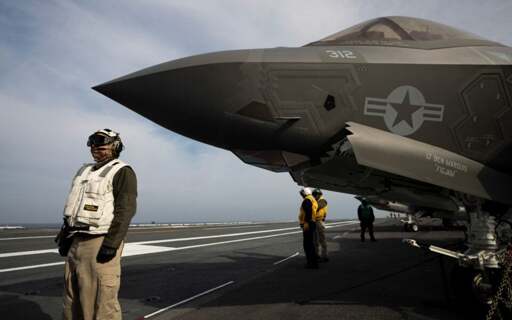U.S. President Donald Trump reportedly intends to lift CAATSA sanctions against Turkey and restore its participation in the F-35 fighter jet program. However, a major legal obstacle stands in the way - a provision included in the National Defense Authorization Act (NDAA) for Fiscal Year 2020.
In 2019, Turkey faced U.S. sanctions after acquiring Russia’s S-400 air defense system. While some sanctions under CAATSA can be lifted by presidential authority, Section 1245 of the NDAA explicitly prohibits the transfer of F-35 aircraft to Turkey as long as the country remains in possession of the S-400. Unlike CAATSA, this law does not provide the president with discretion to suspend the restriction unilaterally.
Legal experts within the Trump administration are reportedly exploring possible workarounds. For instance, if Turkey were to place the S-400 into long-term storage - either domestically or abroad - or transfer control of the system to a third party, such as the United States, the administration could argue that the condition of “possession” no longer applies.
Additionally, a separate bipartisan bill proposed by Senators James Lankford, Jeanne Shaheen, Tom Tillis, and Chris Van Hollen further restricts U.S. support for F-35-related activities involving Turkey. The bill bars the use of defense funds for transferring F-35 aircraft or technical support to Turkey, as well as building or assisting in the construction of storage facilities for the jets.
The only exception would be triggered if both the Secretary of Defense and the Secretary of State jointly certify to Congress that Turkey no longer possesses the S-400, has provided reliable assurances it will not reactivate or reacquire the system, and has not purchased additional Russian military equipment since July 2019.
Thus, despite President Trump’s stated intentions to improve relations with Turkey and resume arms deliveries, including F-35 fighters, his administration faces serious legal constraints. These restrictions were partly the result of earlier actions taken by the administration itself, and reversing them now requires either congressional approval or complex legal maneuvers. This casts doubt on how quickly such plans can be realized, highlighting how current policy must contend with the consequences of past decisions.
While interesting, this article seems to assume we still live in a democracy with separate but equal powers.
Section 1245 of the NDAA explicitly prohibits the transfer of F-35 aircraft to Turkey as long as the country remains in possession of the S-400. Unlike CAATSA, this law does not provide the president with discretion to suspend the restriction unilaterally.
Trump will just do it regardless of the restrictions. Who would check him?
Congress will likely not do anything to check his powers if he violates the law on the books. I’m guessing the new bill mentioned won’t go anywhere either, especially since Trump would need to sign it.
The courts probably will stop him, but Trump will just go appeals surfing until he finds a pliable maga judge.
DoJ/FBI will agree to not arrest individual contractors or military staff shipping parts and support to Turkey since the king’s decrees take precedent over laws apparently.
It’s a bit random which laws they still obey
Turkey is pretty deep into their KAAN program. Why are they still trying to get F35’s?




